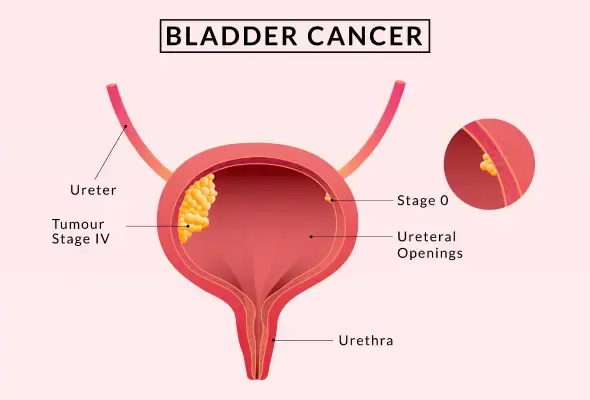What Is Ivermectin?
Ivermectin is an anti-parasitic drug originally developed to treat diseases caused by parasitic worms and external parasites like lice and scabies. Over the years, ivermectin has proven to be highly effective in treating a variety of parasitic infections, and it was awarded the Nobel Prize in Physiology or Medicine in 2015 for its contributions to human health.
While ivermectin is not primarily associated with cancer treatment, recent clinical studies have raised the possibility of its potential role in cancer therapy. Researchers have begun exploring ivermectin's ability to combat cancer cells and enhance the effectiveness of conventional cancer treatments.
How Does Ivermectin Work?
Ivermectin’s mode of action is well-established in the context of parasitic diseases, but its potential impact on cancer treatment lies in its ability to target cellular pathways involved in cancer cell growth.
Several studies suggest that ivermectin may have a variety of effects on cancer cells, such as:
- Inhibiting cancer cell growth: Some research indicates that ivermectin can suppress tumor growth by interfering with cell division and proliferation. It appears to induce apoptosis (programmed cell death) in cancerous cells, which could be beneficial for preventing the spread of cancer.
- Modulating the immune response: Ivermectin may have an impact on the immune system by enhancing the body’s natural ability to fight cancer. Some studies suggest that ivermectin might help modulate the immune system to recognize and destroy cancer cells more effectively.
- Blocking cancer cell migration and metastasis: One of the most concerning aspects of cancer is its ability to spread to other parts of the body (metastasis). Ivermectin has been shown to block the migration of cancer cells, potentially preventing the spread of cancer to other organs.
Given these potential benefits, ivermectin has been considered as part of combination therapies to enhance the efficacy of traditional treatments.
Clinical Studies: Ivermectin and Cancer
While ivermectin’s potential as a cancer treatment is still in its early stages, a number of studies have been conducted to evaluate its efficacy. Here are some of the key findings from recent clinical research:
- Lung Cancer: In a study published in 2020, researchers discovered that ivermectin exhibited significant anti-tumor effects in lung cancer models. The study showed that ivermectin could suppress the growth of lung cancer cells by inducing cell cycle arrest and promoting apoptosis.
- Breast Cancer: Ivermectin has also been investigated for its effects on breast cancer. In laboratory studies, ivermectin showed promising results in inhibiting the proliferation of breast cancer cells and reducing the size of tumors. These effects were thought to be related to the drug’s ability to interfere with cellular pathways involved in tumor growth.
- Melanoma: Melanoma, a type of skin cancer, has also been the subject of studies exploring ivermectin as a potential treatment. Some preclinical research suggests that ivermectin may inhibit the growth of melanoma cells and prevent their ability to spread.
Advantages of Ivermectin as a Cancer Treatment
While ivermectin is not yet a standard part of cancer treatment, its potential benefits cannot be overlooked. Here are some advantages of ivermectin as a potential cancer therapy:
- Repurposing an Existing Drug: Ivermectin is already FDA-approved for the treatment of parasitic diseases, which means it has a known safety profile and is widely available. This could expedite its use in cancer treatment if further studies prove its effectiveness.
- Low Cost: Ivermectin is a relatively inexpensive drug compared to many modern cancer treatments. This could make it an attractive option, especially for patients in low-resource settings.
- Fewer Side Effects: While every drug carries some risk of side effects, ivermectin is generally well-tolerated. For many cancer patients, minimizing side effects is crucial to maintaining a better quality of life during treatment.
- Combination Therapy Potential: Ivermectin’s potential synergy with other cancer treatments—such as chemotherapy and immunotherapy—makes it an attractive option for combination therapy. Researchers are looking at ways to combine ivermectin with other drugs to enhance the overall effectiveness of cancer treatments.
Challenges and Considerations
Despite the promising potential of ivermectin, several challenges need to be addressed before it can become a mainstream cancer treatment:
- Lack of Large-Scale Clinical Trials: Most of the studies conducted thus far have been small-scale or preclinical. Larger, randomized clinical trials are needed to confirm ivermectin’s efficacy and safety in human cancer patients.
- Mechanisms of Action Are Not Fully Understood: While research suggests that ivermectin can affect cancer cell growth, its exact mechanisms of action are still being studied. A clearer understanding of how ivermectin interacts with cancer cells is necessary to develop effective treatment protocols.
- Potential Drug Interactions: As with any drug, ivermectin could interact with other medications commonly used by cancer patients, such as chemotherapy drugs or immunosuppressants. Careful monitoring and research into drug interactions will be crucial for safely incorporating ivermectin into cancer treatments.
Ivermectin for Cancer Treatment: The Future Outlook
The future of ivermectin in cancer therapy looks promising, but further research is required. Researchers are hopeful that ivermectin, in combination with other treatments, may become a valuable addition to the arsenal of cancer therapies in the coming years. However, until more substantial clinical evidence is available, ivermectin should not be considered a primary treatment for cancer but rather a complementary therapy.
As we move forward in 2024, the medical community is watching the progress of ivermectin studies closely. If future trials confirm its efficacy, ivermectin could represent a breakthrough in cancer treatment—especially for patients who have limited options.
Key Takeaways
| Cancer Type | Potential Effect of Ivermectin |
|---|---|
| Lung Cancer | Inhibits tumor growth, induces apoptosis |
| Breast Cancer | Suppresses cell proliferation, reduces tumor size |
| Melanoma | Inhibits cell migration and metastasis |
| Other Cancers | Potential for broad-spectrum effects on tumor cells |
In summary, ivermectin for cancer treatment is an exciting area of research, but it is important to approach it with caution. Ongoing studies will provide more insights into its potential as part of a broader oncology treatment strategy. Until then, it remains a drug to watch as the landscape of cancer therapies continues to evolve.






